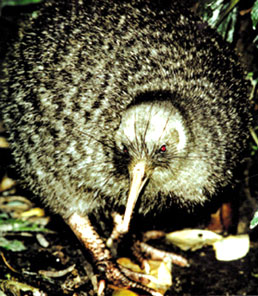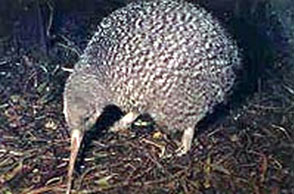What do kiwi eat?
This task is about science investigations.
What do Kiwi Eat?
|
How do scientists find out what kiwi eat? They might think they eat worms and insects but it's difficult to be sure. Sometimes scientists might be lucky enough to see a kiwi probing around in the ground for food, but it throws food down its throat (gullet) from its beak so quickly that it’s impossible to see what it has eaten.

Picture source: www.mtbruce.org.nz
The best way to find out is to collect kiwi droppings (poo). This is easy if there are only kiwi around in an area. However, if there are other similar birds around such as weka it could be confusing.
|

Picture source: www.mtbruce.org.nz
Most of what we now know comes from scientists who work with the kiwi recovery and preservation programme. When kiwi are caught to be weighed and tagged they are put in bags. The kiwi often produce droppings while they are in these bags. The droppings are collected from the bags and checked carefully under a microscope to see what the kiwi has been eating.
In the droppings they have found hard mouth parts of insects and spiders. The mouth parts are different depending on the type of insect or spider. They've also found bits of the waxy coating of different fruits. All these are examined under a microscope to decide which insects and which fruits are being eaten. The scientists then present the findings from their investigation to other people in a variety of ways.
|
|
To find out what kiwi ate, scientists had to carry out an investigation.
There are 4 important steps in an investigation:
|
|

